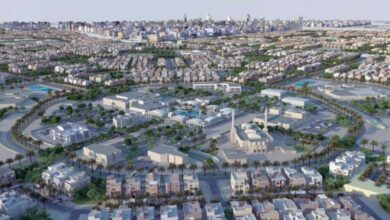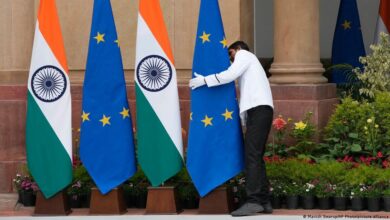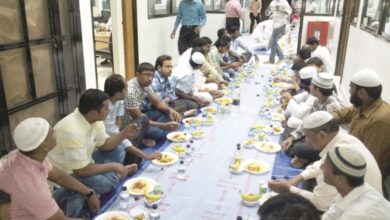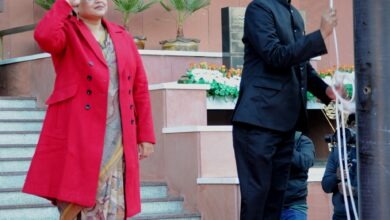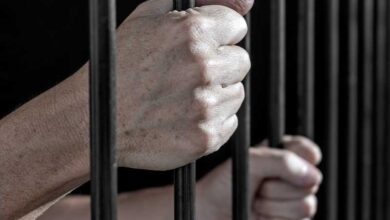Government commitment drives project developments
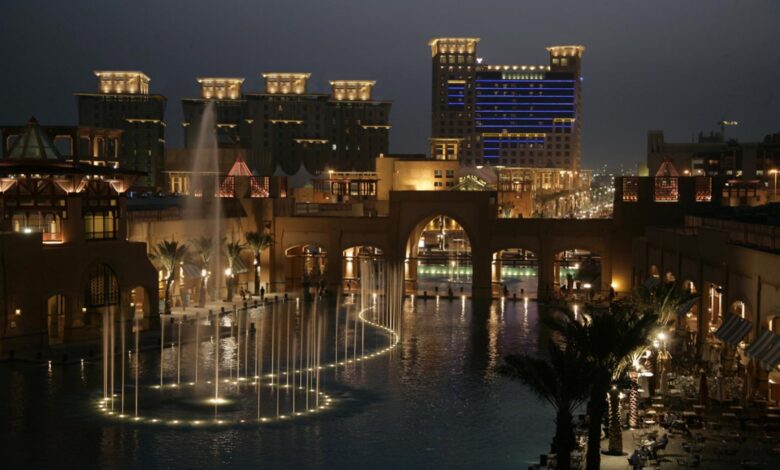
By Reaven D’Souza
Executive Managing Editor
Since taking office in May this year, the government headed by His Highness the Prime Minister Sheikh Ahmad Abdullah Al Ahmad Al-Sabah has prioritized the implementation of major economic and social development projects, and made good governance a key plank of its work agenda.
In accordance with the directives of His Highness the Amir Sheikh Meshal Al-Ahmad Al-Jaber Al-Sabah, the development schemes being initiated aim to enhance welfare of citizens, improve infrastructure, and create job opportunities for national youth, as well as to diversify the overly oil-reliant economy, encourage involvement of private sector in development projects, and accelerate growth in non-oil sector.
The government has also made transparency and anti-corruption measures a critical component in all its activities, including in the awarding of development projects. Corruption and misappropriation of state funds in the past have been attributed to the lack of transparency and oversight in processes surrounding the awarding of contracts for many large scale projects.
Government’s determination to stamp out pervasive corruption in public life, and more specifically in state-funded projects, is winning wide appreciation from people and the market, as well as from local and international stakeholders in public projects. Ensuring complete transparency in the awarding of projects has become all the more salient given that several mega-projects worth billions of dinars have been penciled-in for awarding this year.
The first half of the year has already witnessed the awarding of a number of major projects. Although project awardings in the first-quarter of 2024 were lackluster, it gained pace in the second-quarter, growing from KD98 million in the first three months of the year to over KD688 million in the second quarter. Some of the main projects awarded during this period included constructions in Al-Mutlaa and South Sabah Al-Ahmad residential cities, and affordable housing in the Al-Nayeem area.
According to MEED, a leading business intelligence publication in the Middle East, the second half of 2024 is likely to be equally positive for project activities in Kuwait. More than KD6.3 billion worth of housing and power-related projects are expected to be awarded this year, including the KD1.2 billion Al-Zour Independent Water and Power Plant (IWPP) phases 2 and 3, and the KD800 million Al-Khairan IWPP, as well as the KD100 million Al-Shagaya Renewable Energy Complex.
Other infrastructure developments include projects to revamp the waterfront promenade in Kuwait City, as well as plans for waterfront developments along Kuwait Bay. This includes a 38 km stretch along Sulaibikhat Bay at an estimated cost of KD1.5 billion, and a 7.3km waterfront project along Al-Jahra Corniche valued at KD500 million. The projects will offer recreational, commercial and hospitality spaces, as well as all facilities and amenities for visitors.
Development projects have also been announced in the transportation sector, including work on completing the KD1.3 billion Terminal 2 project at Kuwait Airport, and studies on the 650km high-speed railway project between Kuwait and Saudi Arabia. Scheduled for completion by 2028, the rail project aims to enhance trade and passenger movement between the two countries, with future expansion plans set to link the project to the pan-Gulf rail network, and extend it to Iraq in the north.
Kuwait, despite pledges to reduce greenhouse gas emissions and promote renewable sources of energy, is also investing heavily in boosting its oil and gas sector as they form the backbone of the country’s economy. Kuwait Oil Company, the main upstream hydrocarbon subsidiary of the state’s Kuwait Petroleum Corporation (KPC), is reportedly preparing to tender several upstream oil and gas projects valued at over a billion dinars in this financial year.
In addition, the government has outlined a four-year plan for the 2024-28 period, which envisions several major project developments aimed at economic diversification and creating new revenue streams in the non-oil sector. These include developing the Mubarak Al Kabeer Port and establishing Kuwait’s largest economic zone in North Kuwait, as well as plans by the Public Authority for Housing Welfare to develop greenfield residential cities and housing projects for citizens.
Construction industry analysts note that the projects market in the Gulf Cooperation Council (GCC) states is currently seeing significant growth, driven by a combination of economic diversification plans, increased public and private investments, and construction of a spew of urban development projects across the six-nation bloc. They estimate that the pipeline of projects across the region has now grown to around USD3.1 trillion.
Kuwait’s commitment to development projects adheres closely to the country’s ‘Vision 2035’ New Kuwait plan, which envisages bringing about transformational changes to the economic and social landscape of the country. However, the keenness to prioritize implementation of major projects is regrettably not mirrored in the draft budget for fiscal year 2024-25 (FY 24-25). But, in all fairness, the budget was tabled in January by the previous government.
The draft budget for the year shows an overall cut in expenditure from the FY 23-24 budget, with spending on capital expenditure down 7.7 percent from a year earlier. The allocation of just KD2.3 billion for capex not only pales in comparison to spending by regional peers, but is also among the lowest in terms of its ratio to GDP. The current government will need to significantly raise capex if it is to successfully realize the ambitious development projects planned.
One option for the government to boost capex funding would be to encourage greater private sector investments through public-private partnerships. Another funding alternative is to revive the ‘Ciyada Fund’ — a new sovereign fund planned by the previous government to boost investments in the local economy, spearhead mega projects, and attract foreign investment.
It needs to be added that, over the past many years, budget allocations for capital expenditures have displayed a troubling trend of under-spending. Statistics show a significant and consistent decline in spending on development projects from that allocated in the annual budgets. For instance, out of KD2.5 billion allocated for capital expenditure in the budget for FY 23-24, only KD1.8 billion was spent for this purpose.
Although the lower spending trend has helped bring down the overall deficit in recent budgets, it is nevertheless a damning indicator of the inability of public entities to adhere to planned project disbursements, and to complete projects in a timely manner. This also reflects poorly on the supervisory and monitoring capabilities of concerned government agencies.
A study commissioned by the government in 2022, which monitored the main indicators of progress in development projects, found that frequent changes in project-scope documentation, administrative and bureaucratic hurdles in issuance of necessary licenses and utility connections, shortage of labor, and the contractor’s lack of requisite technical capabilities, were among the main obstacles to implementing development projects as scheduled.
Among the several recommendations made by the study for timely completion of projects were, enhancing the supervisory capabilities of concerned government entities, increasing administrative efficiency, streamlining the tendering process by reducing and restructuring project documentary cycles so as to make them more fit for purpose, and improving the degree of coordination between the various government agencies related to project developments.
Despite the shortfall in spending on capital expenditure in the past and its repercussions on the economy, the incumbent government’s resolute commitment to implement development projects could well be the catalyst that project pipelines have lacked in the past. Government’s staunch support for stimulating development projects, creating an investment-enabling environment, and driving sustainable economic growth will hopefully ensure the continued prosperity of Kuwait and the welfare of its citizens in the years ahead.






















